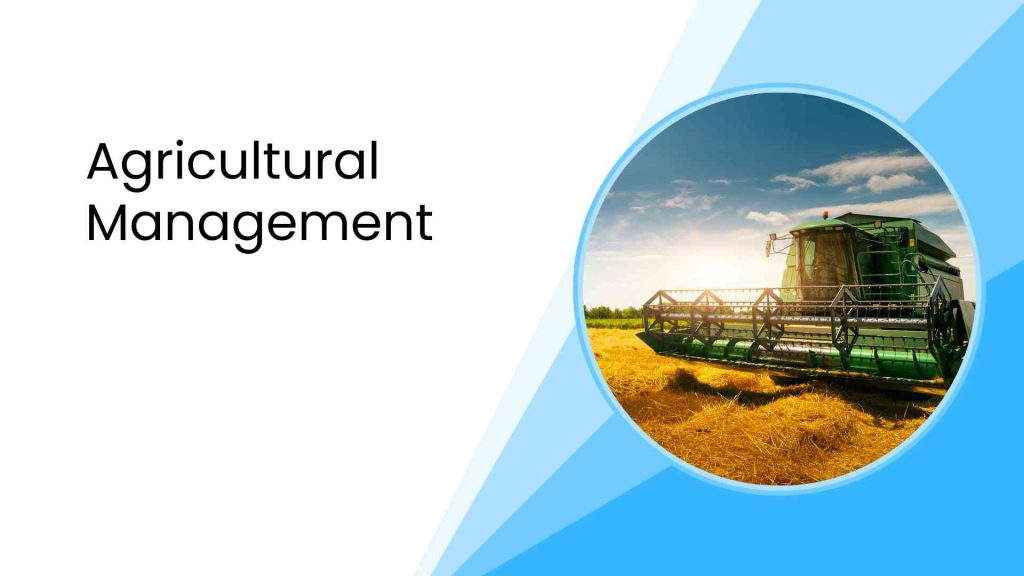By 2050, the world population is expected to reach 9.7 billion people. Food production must increase by 70% to keep up with the vast population. Therefore, serious reforms are needed in the agricultural sector so that our food system is ready to encounter the challenges of a burgeoning world population.
The agriculture industry provides food, fiber, and raw materials. This sector has undergone a significant transformation in recent years, driven by technological advancements, changing consumer preferences, and global environmental challenges. The agriculture industry must evolve and adapt to a growing population while addressing sustainability concerns. One of the key tools facilitating this evolution is ERP software.
ERP systems have long been associated with streamlining business processes and improving operational efficiency across various industries. Adopting ERP solutions is gaining momentum in agriculture, allowing farmers, agribusinesses, and food processors to optimize their operations, enhance decision-making, and position themselves for future growth opportunities. We will explore the role of ERP systems in agriculture and how they can help the industry prepare for a sustainable and prosperous future.
The Changing Landscape of Agriculture
Agriculture is different from what it used to be. In the past, farming was primarily manual and dependent on traditional practices. Today, it has become increasingly data-driven and technologically advanced. Farmers are now tasked with managing complex operations, from crop production and livestock management to supply chain logistics and regulatory compliance.
Several factors have contributed to this shift:
- Population Growth: The agriculture industry faces the challenge of producing more food with fewer resources. ERP systems can help optimize production and resource allocation to meet this demand efficiently.
- Environmental Concerns: Climate change, resource depletion, and environmental degradation are pressing issues. Agriculture must adopt sustainable practices to minimize its impact on the planet. ERP software can facilitate better resource usage tracking, reducing waste, and promoting sustainable farming practices.
- Consumer Demands: Today’s consumers are more conscious of their food, demanding transparency and traceability throughout the supply chain. ERP systems enable farmers and food processors to provide this information, meeting consumer expectations.
The Role of ERP in Agriculture
ERP are comprehensive software solutions that integrate various aspects of a business, including finance, human resources, inventory management, and production processes. In agriculture, ERP software can be tailored to address the unique challenges and needs of the industry:
Streamlining Operations
ERP systems help streamline agricultural operations by providing a centralized platform for managing tasks such as planting, harvesting, irrigation, and equipment maintenance. This streamlining enhances operational efficiency and reduces costs.
Data-Driven Decision Making
Agriculture is increasingly reliant on data for decision-making. ERP solutions collect and analyze data from different farm parts, enabling farmers to make informed choices about crop varieties, planting times, and resource allocation.
Supply Chain Management
ERP software allows for better management of the agricultural supply chain. Farmers can track the movement of crops and livestock from field to market, ensuring freshness and minimizing waste.
Compliance and Sustainability
Meeting regulatory requirements and sustainability goals is crucial for the agriculture industry. ERP systems help monitor and report on compliance with environmental regulations and sustainable farming practices.
Financial Management
Effective financial management is essential for the long-term viability of agricultural operations. ERP software can handle accounting, budgeting, and financial planning, helping farmers make sound financial decisions.
Preparing for Future Growth Opportunities
As agriculture continues to evolve, future growth opportunities lie in adopting innovative technologies and sustainable practices. ERP systems play a pivotal role in this transformation by providing the infrastructure needed to:
- Embrace Precision Agriculture: Precision agriculture relies on data and technology to optimize farming practices. ERP systems provide the data integration and analytics capabilities required to implement precision agriculture techniques such as GPS-guided planting and automated irrigation.
- Expand Market Access: Accessing new markets, both domestic and international, is critical for agricultural growth. ERP solutions facilitate compliance with export regulations and provide tools for managing international trade relationships.
- Promote Sustainability: Sustainability is not just a buzzword; it’s a necessity. ERP systems help track and reduce resource consumption, minimize waste, and ensure that farming practices align with sustainability goals.
- Enhance Resilience: Climate change brings unpredictability to agriculture. ERP software can help farmers assess and mitigate risks associated with extreme weather events, pest outbreaks, and changing climate patterns.
The agriculture industry is at a pivotal moment in its history. Adopting ERP systems is becoming increasingly essential to seize future growth opportunities while addressing population growth and environmental sustainability challenges. These systems enable agribusinesses to optimize their operations and position themselves for a prosperous and sustainable future in agriculture. In the coming sections of this article, we will delve deeper into the specific ways ERP systems benefit agriculture and explore real-world examples of successful implementations in the industry.
How Can Acumatica Enhance?
Acumatica ERP offers a robust solution to enhance agriculture management by providing a comprehensive platform that streamlines and optimizes critical agricultural processes. Through Acumatica, farmers and agribusinesses can efficiently manage inventory, crop planning, equipment maintenance, and financials while leveraging real-time data analytics for informed decision-making.
Acumatica cloud ERP enables precise resource allocation, ensuring sustainable farming practices and minimizing waste. Acumatica’s cloud-based architecture enhances accessibility, enabling remote monitoring and management of agricultural operations, ultimately increasing productivity, reducing costs, and positioning agriculture enterprises to thrive in a rapidly evolving industry. Contact us for a customized ERP.

Sangeetha brings 20 years of experience in Information Technology which includes Solution architecting, building micro services, research, and evaluation of business applications, integrating apps.

